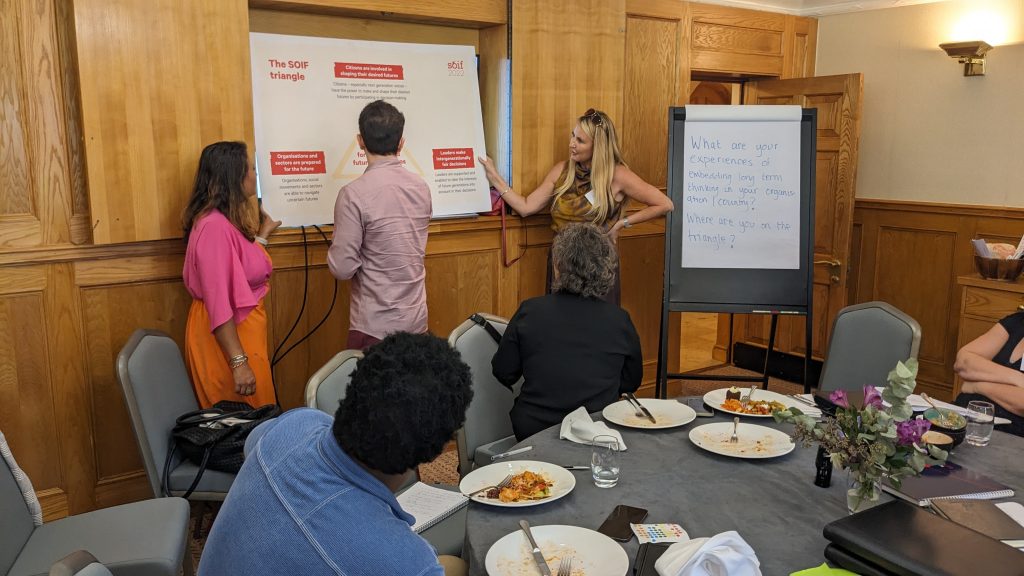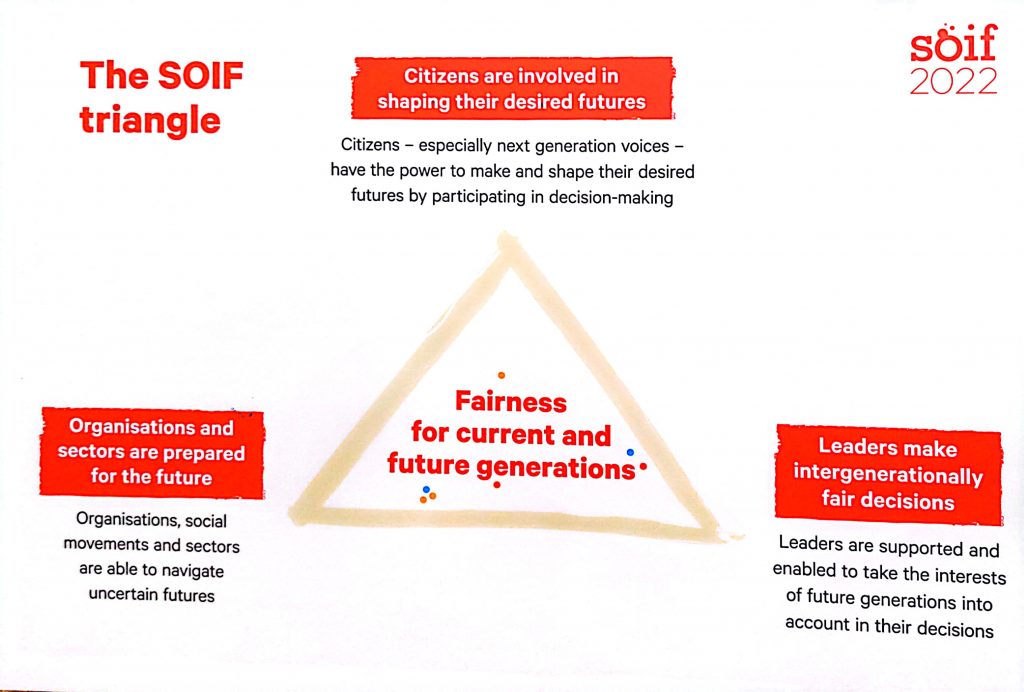
Why is a Declaration important?
The challenges that countries and people around the world are facing show that current governance mechanisms are not fit for purpose – at national or global level. The Declaration on Future Generations is a set of commitments on how governments will take a longer-term approach in national and global decision-making.
What has happened so far in negotiations?
The Declaration on Future Generations is in the final stages of negotiation before being agreed by member states at the Summit of the Future in September. There are elements of all 3 parts of the transformational foresight triangle referenced in the current draft which is encouraging to see. However, there is some uncertainty about whether member states will agree to accountability measures of appointing a special envoy and implementing a review system. And experience shows that all 3 parts of the triangle need to be implemented systematically to drive change. How the Declaration is implemented will be critical.

What comes next?
The SOIF retreat brings together changemakers and future thinkers from many sectors across the world to learn, share and connect. At #SOIF 2024 we held a session to explore what implementation looks like for member states and how to ensure accountability and coordination across the system.
We heard examples of what works from several countries:
- In Kenya, Citizens Assemblies have been forming organically and political champions have been holding government to account on how they are listened to
- In Cameroon there are pockets of effective practice and some structures such as youth councils to build on. But progress depends on innovators connecting these up and setting up commissioners outside government
- In the UK Chief Scientific Officers have become more widespread in government departments, championing long-term thinking from the inside
- Citizen engagement was the area where fewest participants felt they had seen progress in their countries and contexts. Some shared frustration that leaders need to put talk into action and meaningfully connect with citizens or they become disillusioned
- In other countries there have been lessons about building the case for futures so that it is funded on a sustainable basis. This means using mainstream language and proving its value
We also reflected that the implementation of the Declaration does not have to look the same everywhere. There is space for different approaches in different contexts. However, the Declaration is important because it puts in place a set of common operating principles across member states. High ambition is needed in setting and implementing these principles to ensure impact for current and next generations.
Join the Pioneers and Pledge communities to share best practice in advocating for and implementing a high impact Declaration.
